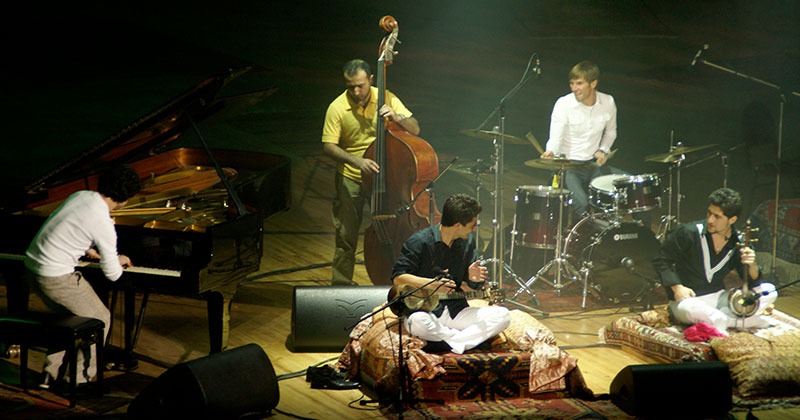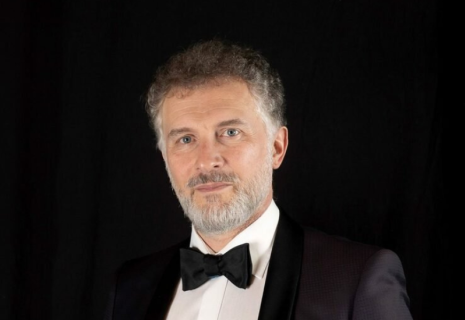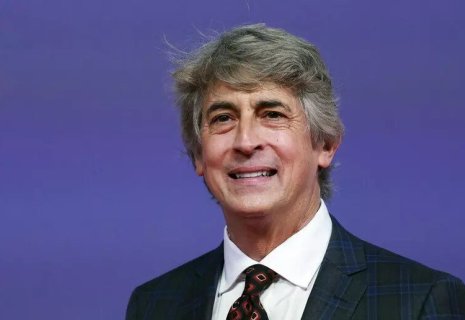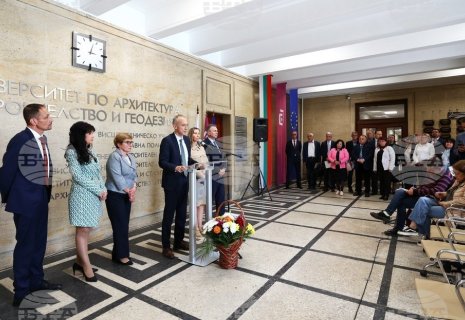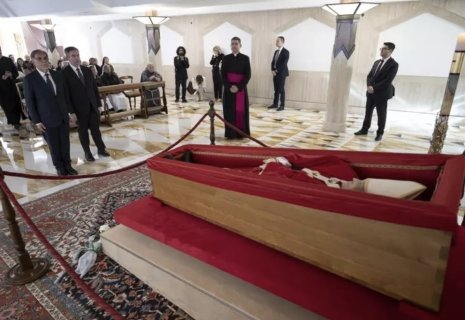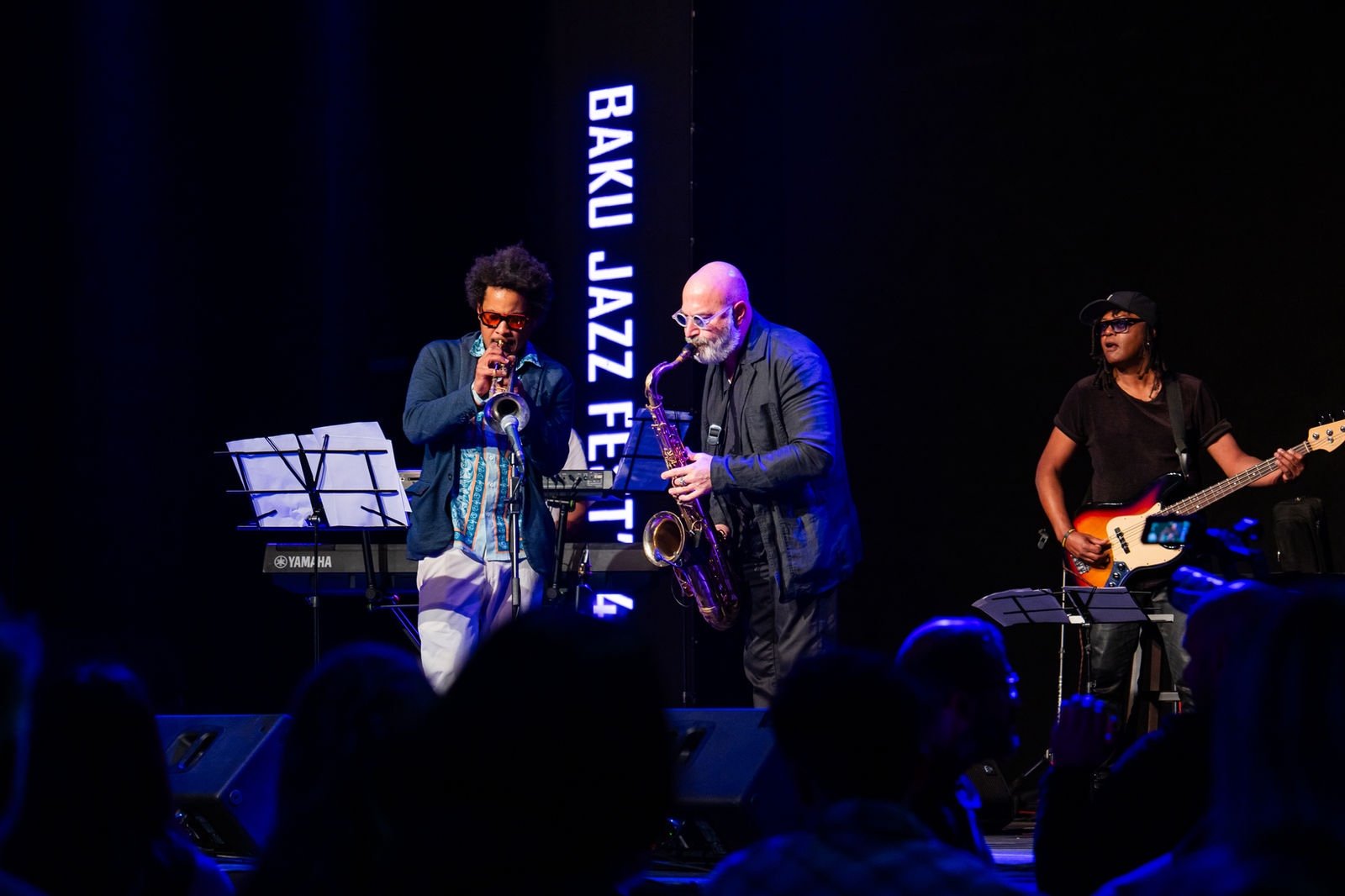
"Mainz and Baku are sister cities on the same meridian - it's destiny" - interview with Aziza Mustafazadeh
Today is a special date for jazz lovers. April 30 marks the International Day of Jazz, one of the most intellectual trends in music, which has played a great role in the culture of Azerbaijan, CE Report quotes Trend.
Jazz was born in America in the early 20th century, but in a few years it became popular in Europe. In Germany, the first jazz concert was held in 1919, and a year later the jazz record “Tiger Rag” was presented to listeners. In the same 1920 in Baku the first jazz band under the leadership of Mikhail Rolnikov was created, which delighted with a new musical style.
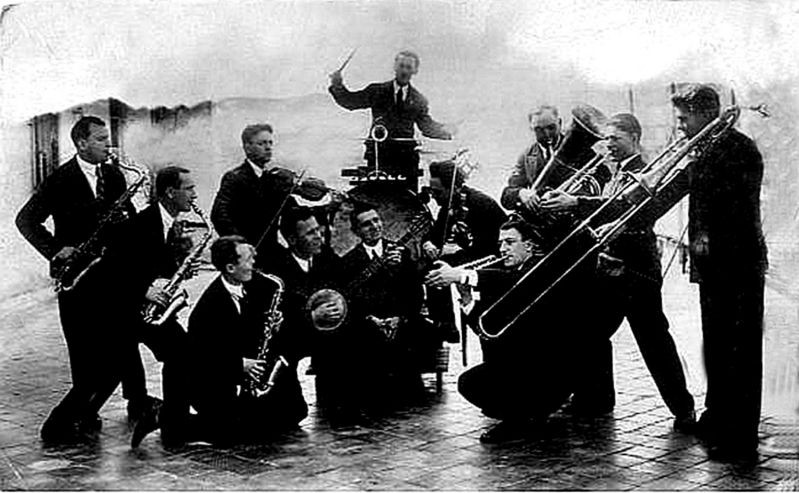
Mikhail Rolnikov’s ensemble
Newspaper articles of that time say that restaurants in Baku played “very interesting music under an unfamiliar name - jazz”. In 1927, American singer Coretti Arle-Titz even performed in the capital, singing in the famous sextet “Jazz Kings” of Frank Withers with Sidney Bechet during their tour in the USSR.
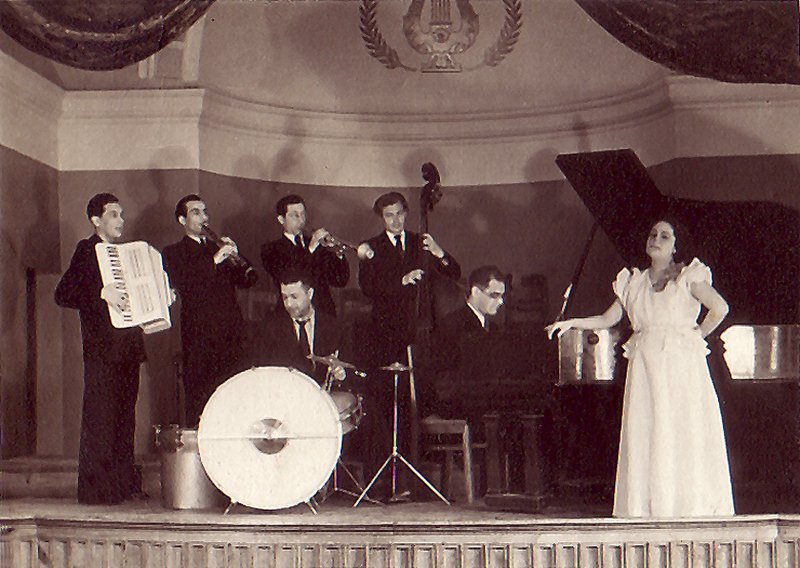
Coretti Arle-Titz
We will tell more about the history of jazz in Azerbaijan...
Many years have passed since then, but this genre of music, which has enriched the peoples of the world, has also found its fulfillment in the cultural exchange between Azerbaijan and Germany.
Held since 2005, the Baku International Jazz Festival (part of the European Jazz Network EJN) has become one of the most popular events among residents and guests of the capital. It traditionally features musicians from Germany, including Christof Lauer, Uwe Steinmetz, Jazzanova Live & DJ Amir, Simin Tander Trio and others. The guests of the festival invariably greet the German musicians with applause.
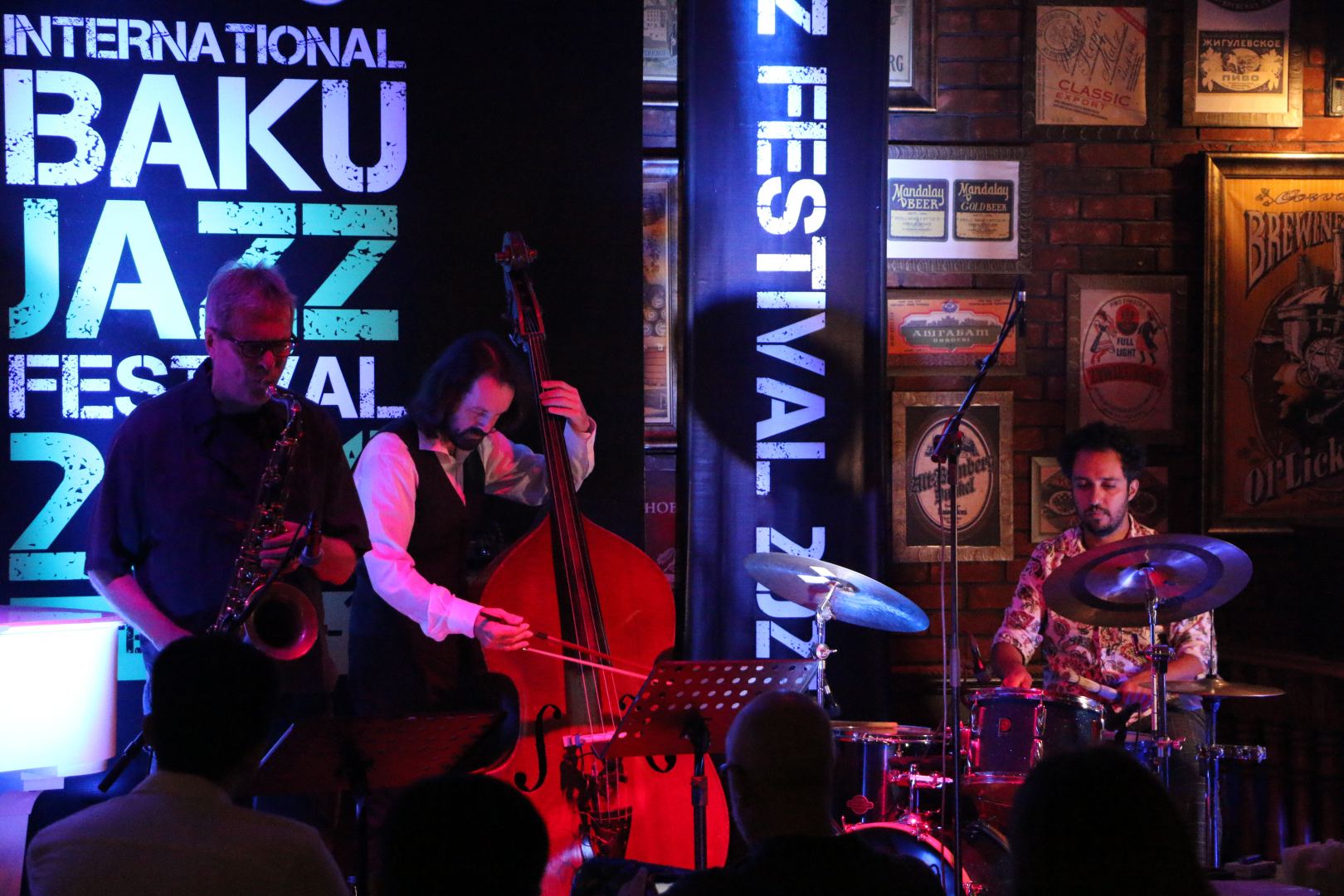
Christof Lauer
Azerbaijan has been traditionally represented at the main event of European jazz - the international Jazzahead exhibition held in Bremen (Germany) since 2006.
“Thanks to annual participation at Jazzahead, Azerbaijani jazz has become recognizable in Europe and other countries. Jazz Dunyasi magazines, booklets, books on the history of Azerbaijani jazz, CDs of Azerbaijani jazz musicians are distributed to visitors of the exhibition,” says Leyla Efendiyeva, director of the Baku Jazz Festival.
At Jazzahead 2017, Rain Sultanov's vinyl record “Inspired by Nature”, released by German label Ozella Music, was presented and became the first Azerbaijani record of the post-Soviet period. And at Jazzahead 2022, Isfar Sarabski's “Planet” was nominated in the category “Best Foreign Debut Album of the Year” as one of the three best among hundreds of new projects presented.
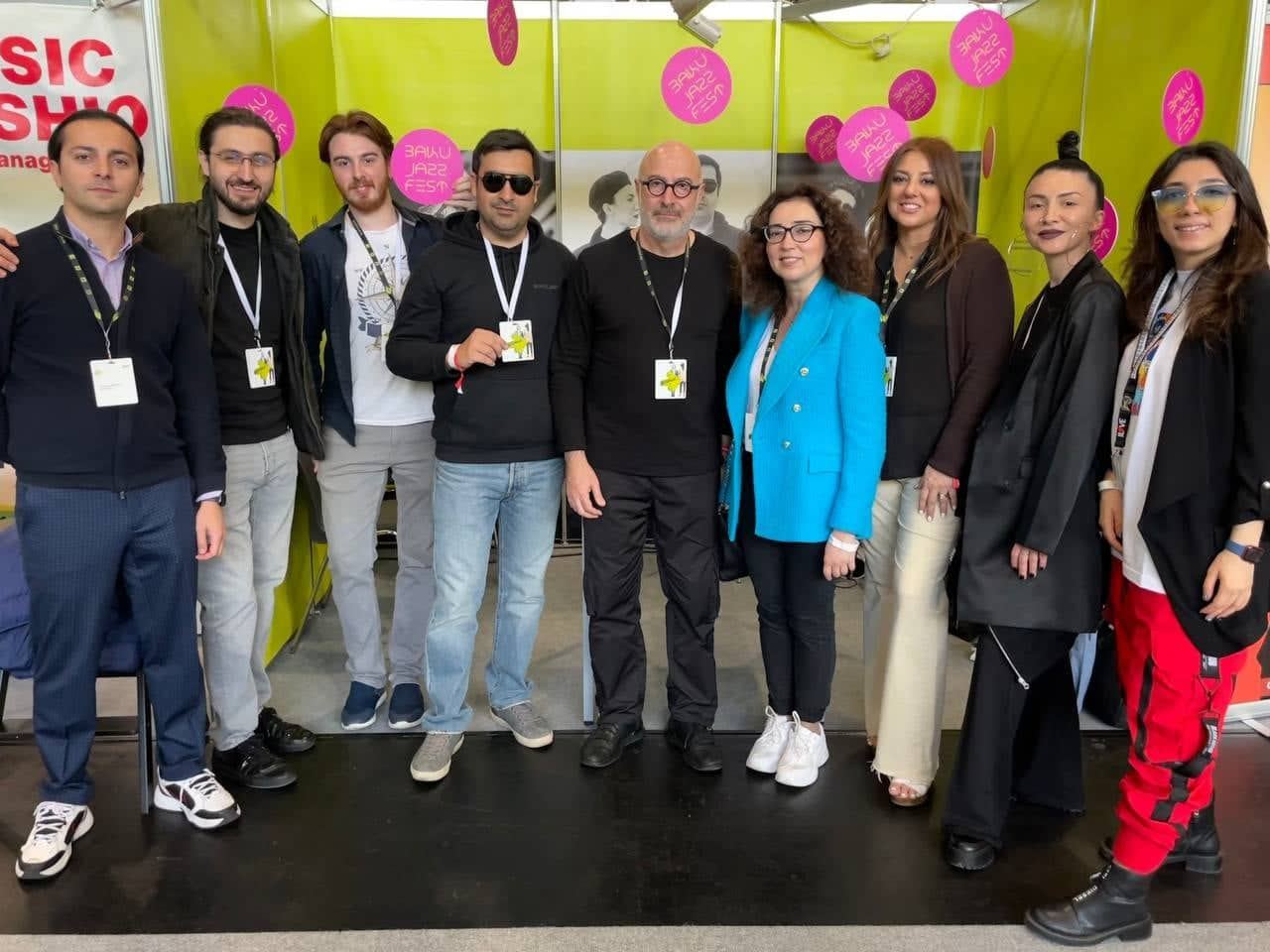
Jazzahead
Jazz culture between Azerbaijan and Germany occupies a great place in the work of Salman Gambarov, who, together with his band Bakustic Jazz, has repeatedly performed in Germany. In 2024, a joint project of young musicians from Azerbaijan and Germany “Morgenland meets the Land of Fire” was presented at the international music festival Morgenland Festival Osnabrück. Project leader Salman Gambarov has been participating in this festival since 2009.
“The festival has been bringing together representatives of different musical cultures on one stage for twenty years. Every year Osnabrück becomes a city of the world for ten days - the Morgenland Festival builds bridges between the music of East and West. Participants combine exotic sounds of ethnic instruments with traditional music, avant-garde, jazz and even punk rock, art of duets, master classes for young people are held,” Salman Gambarov noted.
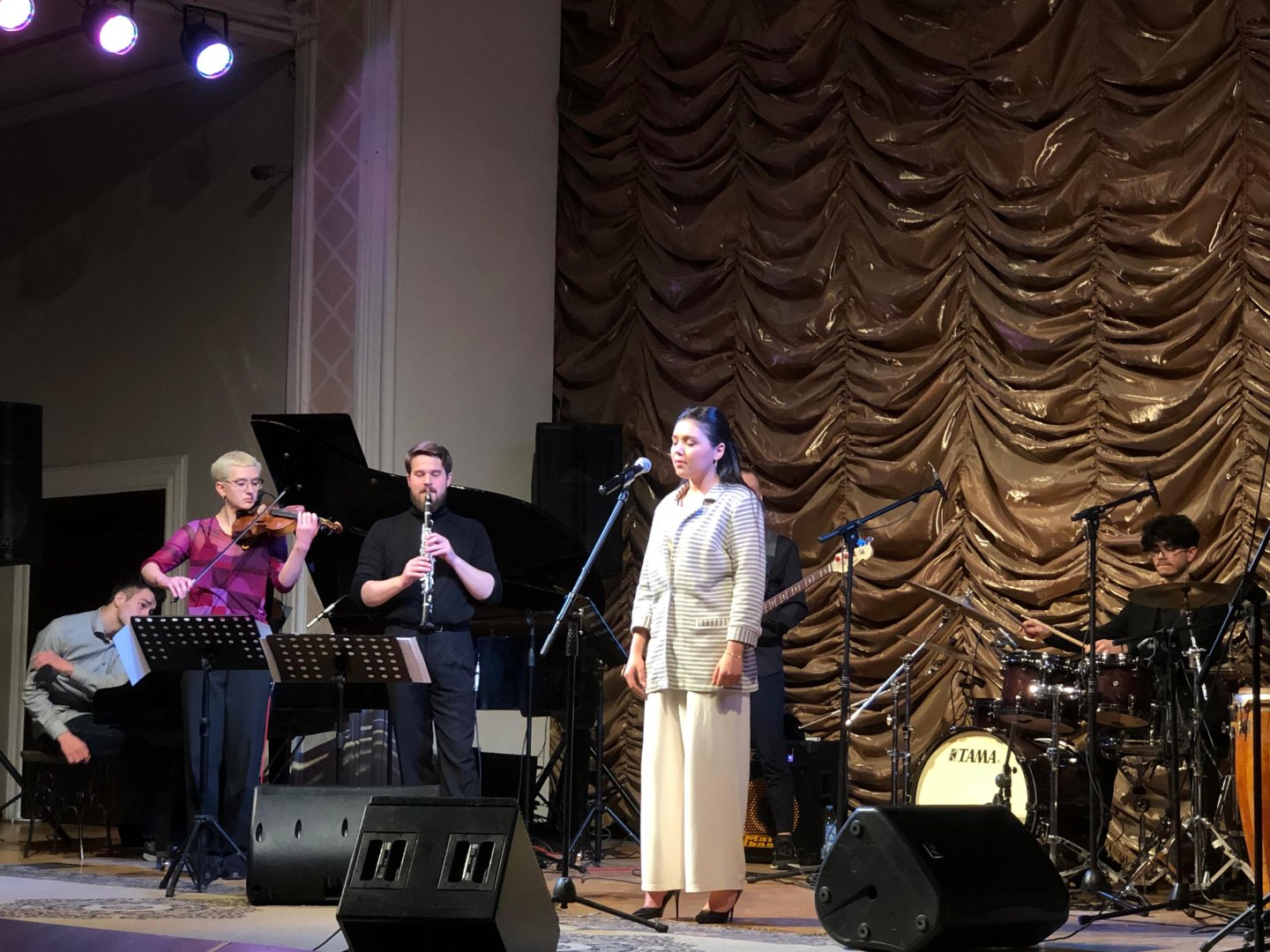
Morgenland meets the Land of Fire
One of the brightest representatives of Azerbaijan in Germany is pianist and composer Aziza Mustafazade, who has been living in this country since 1990 and has achieved world recognition. Aziza Mustafazadeh's creativity is a mixture of classical, jazz and Azerbaijani folk motifs.
In 1991 Aziza recorded her debut album, Aziza Mustafazadeh, in Germany, and her next album, Always, has already earned her the ECHO Award and the German Jazz Recording Association.
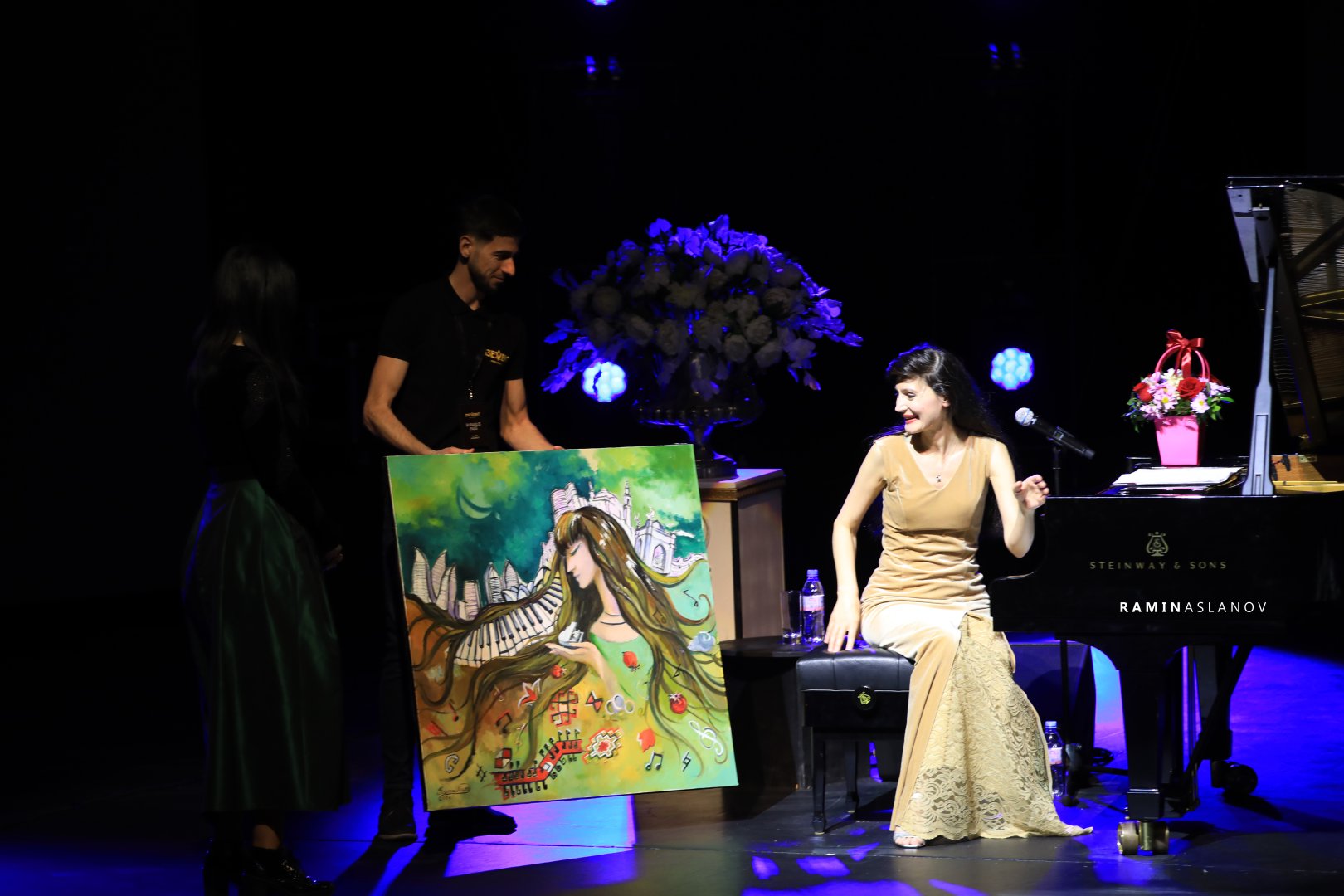
Aziza Mustafazadeh
Her albums Dance Of Fire, Seventh Truth, Jazziza, Shamans, Contrasts and others have sold millions of copies. In Europe she has been called “Oriental Diva”, “Scheherazade at the piano”, “Princess of Jazz”, and after a 1997 concert at Queen Elizabeth Hall she was honored with the title “Queen of Jazz”. Her name is also included in the World Encyclopedia of Jazz. Successful tours in many countries around the world only emphasize her natural talent. She is the daughter of an outstanding pianist, founder of Azerbaijani jazz-mugham, composer Vagif Mustafazade. If the founder of German jazz, different from American jazz, is composer Utah Heep and the band he created, then for Azerbaijan it is connected with the name of Vagif Mustafazade.
This year is the 85th anniversary of the birth of Vagif Mustafazade, who lived a short (only 39 years) but bright and meaningful life. He was a laureate of jazz festivals in Monaco, Georgia, Estonia, Ukraine, Azerbaijan, Uzbekistan, musical director of the Georgian ensemble “Orero”, founder of “Kavkaz” at the Georgian State Philharmonic and vocal quartet “Leyli” and VIA “Seville” at the State Radio of Azerbaijan, the collective “Mugham”, successfully toured the cities of the USSR and Latin America. He won the love of millions with his originality, virtuoso technique, original harmonic language of music. The composer wrote more than 1,300 works, including symphonic and chamber music and piano pieces. The master synthesized jazz music with Azerbaijani mugham, creating unique works that entered the treasury of world musical pearls. His name is included in the World Encyclopedia of Jazz. The House-Museum of Vagif Mustafazade operates in Baku.
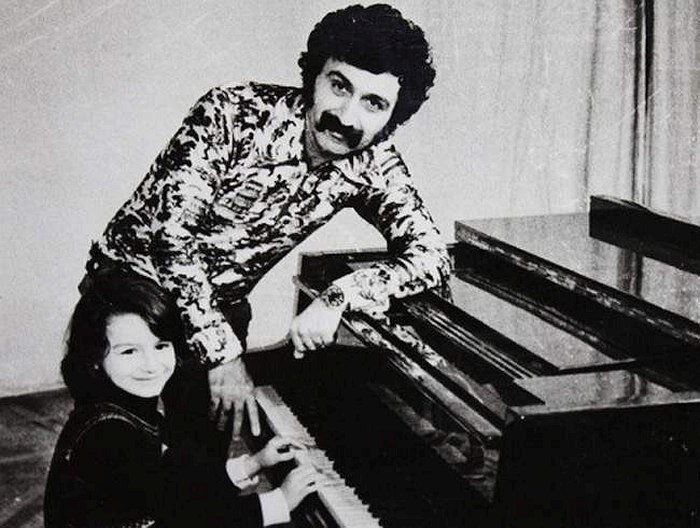
Vagif Mustafazade with Aziza
The path of Mustafazade family is continued by young Ramiz Khan, son of Aziza and grandson of Vagif, a very talented pianist and composer.
In an exclusive interview Aziza Mustafazade shared her thoughts
Aziza, you live in Mainz. Why did you choose this city to live in Germany?
Mainz is a twin city with Baku, which is located on the same meridian. It's fate. “You can't escape fate” is the name of one of the compositions of the great Vagif Mustafazade.
You have performed at a number of jazz festivals in Germany, held concert programs. Can you tell us about the most memorable moments of one of your concerts?
Perhaps one of the moments was the most unforgettable. During the performance of Vagif Mustafazade's composition “All Alone” - a young man sobbed in his voice and left the hall.
What does a typical German jazz lover look like? Are there any peculiarities of performing on the jazz scene in Germany?
The German audience is very knowledgeable, even on the outskirts of the country. They know how to listen. And most importantly, the audience comes to listen not because of curiosity, but because they love a particular artist.
How has life in Germany and German culture in general influenced your creativity?
Very positively. I was surrounded by the right people at the right time. Besides, Germany is Bach's homeland. As my Father used to say, “Without Bach there is no Jazz”.
What do you do in Germany when you're not doing jazz? What are your hobbies? What is your favorite thing to do in Germany?
I love nature and animals very much. I dream to create an Animal Rescue Fund in Azerbaijan.
What can you tell about Trio CD album “Generations”? What compositions are included in it, in what style it is made? Under what label was it presented to the listeners?
Jazziza Records is my label, created in 2006. The CD "Generations" includes compositions by my father, my son and myself. The idea came when my three year old son started humming melodies to me. When I was picking up the chords he would tell me which ones were right...
Are you happy that you had the opportunity to share the stage with both father and son. Can you describe that feeling to us? Your son must have grown up in a very different jazz atmosphere. How has German culture and art influenced him?
Yes, I'm grateful to God for such happiness. “Words Can't Tell” is the title of one of Vagif Mustafazade's pieces.
Now let's plunge into the history of Azerbaijani jazz, which dates back to the 30s of the XX century. The first jazz orchestra in Baku in 1938 was created by famous composers Niyazi and Tofig Guliyev, who in his youth performed with the first jazz orchestra of the USSR, the orchestra of Alexander Tsfasman. The State Pop Orchestra (also called the State Jazz Orchestra) became the foundation of Azerbaijani jazz. In 1941-1945 and after the end of the Great Patriotic War the head of the State Pops Orchestra was Rauf Hajiyev. In 1945, Eddie Rosner's Jazz Orchestra toured Baku, the leading soloist of which was a saxophonist born in Baku Parviz Rustambekov, one of the first jazz improvisers in the USSR. He was even called the Soviet Benny Goodman.
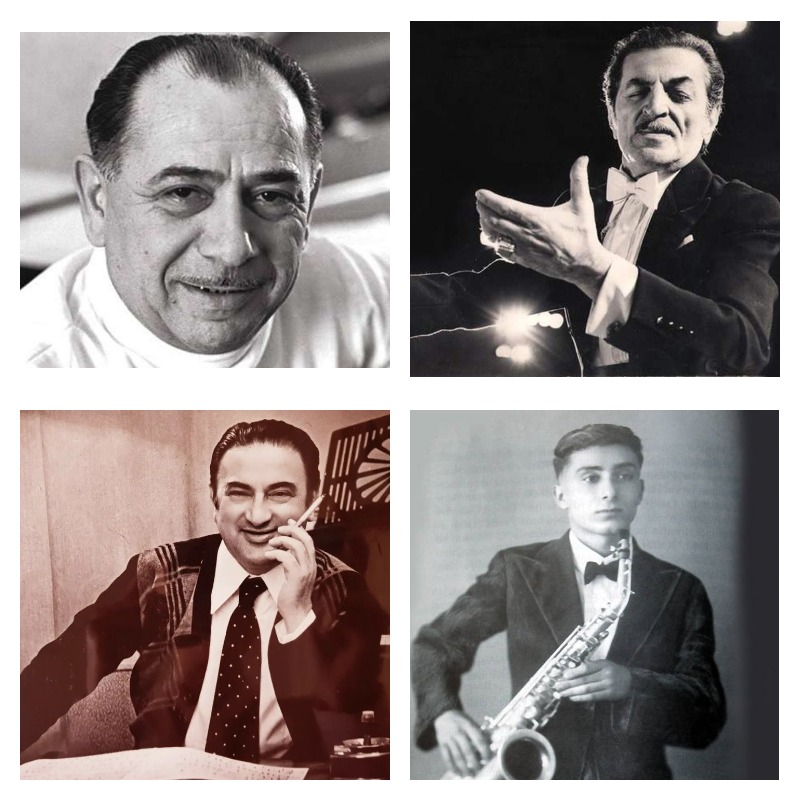
Niyazi, Tofig Guliyev, Rauf Hajiyev, Parviz Rustambekov
In the 60s, with the support and guidance of composers Gara Garayev, Niyazi, Tofig Guliyev and Rauf Hajiyev, the second life of pop and jazz music began in Azerbaijan. The ensemble "Gaya", which at that time included Teymur Mirzoyev, Arif Hajiyev, Rauf Babayev and Lev Elisvetsky, as well as the quartet of Rafig Babayev and Vagif Mustafazade. In the 60s, the head of the Jazz Orchestra of Radio and Television of Azerbaijan was Tofig Ahmadov, who had previously played saxophone in the Moscow orchestra of Eddie Rosner. Famous singer Muslim Magomayev started his career in his orchestra, and as the only soloist he performed with the band as a member of the Soviet delegation at the VIII World Festival of Youth and Students in Helsinki.
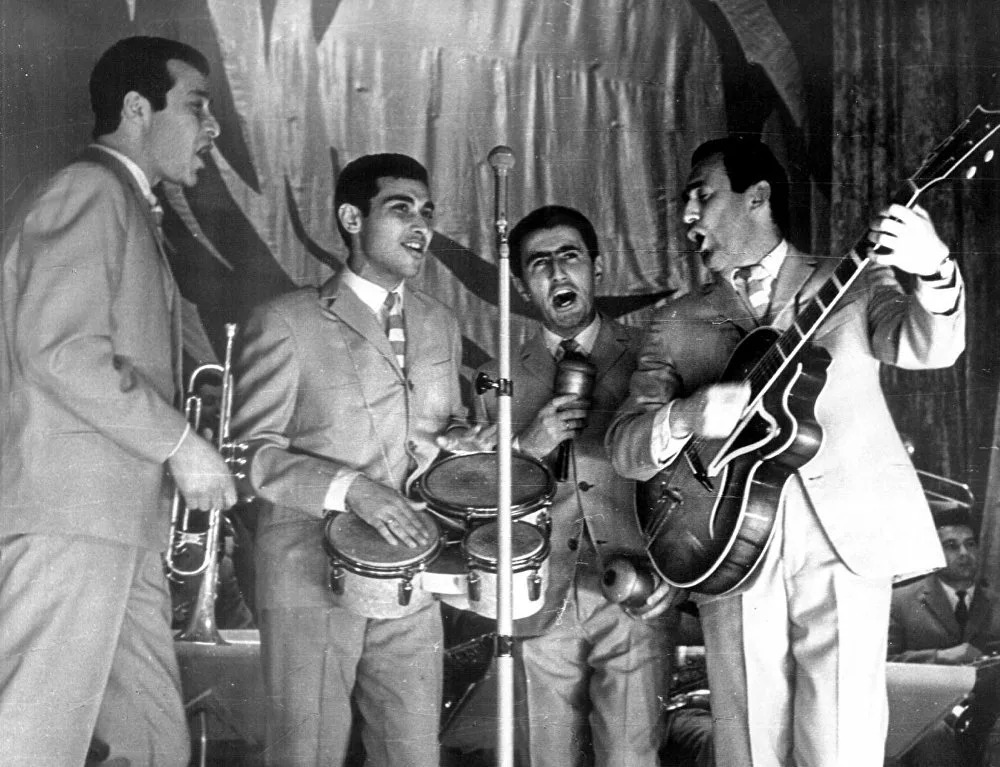
Ensemble "Gaya"
The first jazz festival in Baku was held in 1969, giving a powerful impetus to the development of pop and jazz, brought to the stage a whole pleiad of talented bands, musicians and composers who enriched many musical groups of the former USSR. A whole pleiad of jazz artists and groups appeared. In those years, such musicians as Natavan Sheikhova, Rafig Seyidzade, Vladimir Tartakovsky and others shone.
Azerbaijani jazz continues to develop dynamically today, various events and concerts with the participation of world celebrities are organized. Azerbaijani jazzmen are participants and winners of many international jazz festivals and competitions. Jazz in our country has a rich history, continues its traditions, and nowadays a great contribution to its development and success in the international arena belongs to such musicians and composers as Rahin Sultanov, Jamil Amirov, Isfar Sarabski, Salman Gambarov, Shahin Nowrasli, Emil Afrasiyab, Emil Ibrahim, Elchin Shirinov and others.
We congratulate you on International Jazz Day and wish further development in this field between Azerbaijan and Germany.
